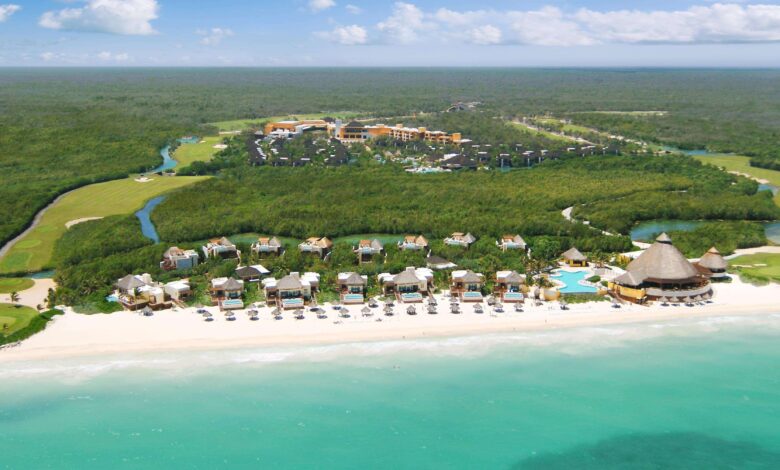
How Wellness and Sustainability Intersect at the Fairmont Mayakoba
By Larry and Adam Mogelonsky | December 13, 2023
In this case study, we look at not only some tactical programming for how to embed wellness and sustainability into a resort hotel, but also how to develop them in such a way as to provide a strong incentive for guests to come back any time of year by making each visit special. Specifically, we looked at what’s being done at the Fairmont Mayakoba, a 401-key, five-diamond, oceanside resort just outside of Playa del Carmen in the Mayan Riviera in Mexico.
To learn about some of the intricacies in setting up the programming where wellness and sustainability intersect, we sat down with Silvia Ferrer, the resort’s director of marketing and public relations, who plays a key role in the ideation and implementation of the Fairmont Mayakoba’s programming design. As the first lesson during our time with Ferrer, we learned that the only way to make these successful so that they can complete the more strategic task of incentivizing return visits is to embrace wellness and sustainability as part of the brand DNA. Therein, this property’s work offers a powerful lesson for the global hotel industry in terms of how to create an aspirational place of work and how good core values create a virtuous circle for ongoing success.
A Subtle Example of Wellness in the Brand DNA
Let’s start small, as often the little details are what distinguish the greatest properties around the world. When first crafting the on-premises guest experience, having wellness as a core value meant that it wasn’t compartmentalized as a spa-only affair. The approach to F&B, the guestroom design, and the arrival experience had to be top considerations, of course, but the team also gave a lot of thought to imbuing the entire customer journey with wellness elements to make it an immersive theme.
This being a tropical resort, having wellness at heart meant that the team had to ponder how a guest’s five senses would be positively influenced at every turn as they moved about the grounds. Specifically, certain plants that are both calmingly fragrant and reflective of the local environment (thus also reinforcing the pursuit for sustainability in all matters) were strategically positioned so that passersby would benefit from their scents as they walked from place to place. In essence, this engineered the resort for total relaxation.
Almost imperceptibly, these scents nudge guests into better moods and help to alleviate stress. But the word “passersby” implies not only paying visitors but also the onsite teams that grace the same corridors as they go about cleaning rooms, delivering service orders or, for managers, walking to the next meeting.
With so much emphasis nowadays on employee wellbeing, we often forget that wellness programming is not just a way to increase ancillary spend per guest (TRevPAR), it’s also a cardinal way to improve the livelihoods of teams so that they are more motivated to excel in their roles. With any new plan put forth, it’s the attention to all the little details that will make the program a success, and this will only truly happen if the team embraces wellness as part of the brand DNA so that they can continually improve the guest programming.
Making Every Stay Different Through Sustainability
Upon asking about what’s next for the Fairmont Mayakoba on the wellness front, Ferrer was quick to rifle off a near endless list of new experiences and updates to current ones, avidly recapping in mere seconds the thousands of hours of work from her team to set these all up. Importantly, she remarked that given all the hospitality investments into the Yucatan spurred on by the soon-to-be-open intercity Tren Maya, the Fairmont Mayakoba must adopt an attitude of continual reinvention to stay competitive, with a key driver of that being not only wellness, great F&B, and a series of onsite concerts featuring some world-class names (including Ricky Martin), but sustainability itself.
The fundamental rubric for this is Accor Planet 21 wherein Fairmont has pledged to become one of the top environmental leaders in the world. But sustainability need not be siloed into only a BOH energy management assessment or an ecosystem impact study. Embracing it as a core value at the Fairmont Mayakoba has resulted in a layered approach, where the company asks, “Am I helping the planet as well as the local culture?” which has helped inspire new ideas for eco-conscious guest activities, making sustainability fully visible to customers while also offering unique excursions to encourage repeat visits.
For instance, one layer of this program has been arranging for day trips into the local Mayan communities, teaching guests about their traditional way of life with an emphasis on how these cultures exist in harmony with nature and how nothing goes to waste. And yes, there’s great food, too. Oftentimes, visitors to the Mayan Riviera go from the airport to the resort then back to the airport, and don’t develop a real connection to the land or its people. Such excursions change that and offer something unforgettable.
Connected to this is another initiative to help preserve the local communities. Pack for a Purpose is an original program at the Fairmont Mayakoba where guests are invited to use the extra space in their luggage for supplies that are needed for projects supporting disadvantaged local children and nonviolence toward animals, with the incentive of 10 percent off the regular room rate. Ferrer noted that this is a big win-win as travelers are initially motivated by the discount but then come to realize the positive impact they are having while the locals get to see the true depth of the hotel’s advocacy.
Third of note is the property’s partnership with Oceanus, an organization dedicated to reef restoration. The excursion here is a scuba diving trip with the extra element of planting coral that will grow to full size over the course of a decade or longer. To track this progression as a memento of the experience, post-departure guests can log in to a web portal to see exactly how their specific coral is taking shape.
Finally, as with all the wellness pursuits, these sustainability touchpoints also endear the hotel to its teams, creating an aspirational place to work. Locals want to see their communities thrive in real time, and there’s an opportunity through these eco-conscious programs to draw young minds back into the hospitality industry.
Transformative Experiences Require Property Evolution
The nature of wellness is evolving, as are sustainability requirements, and together this means a competitive game of one-upmanship amongst hotels, both to keep attracting guests and to continue to promote hospitality as an aspirational career path. Through the examples that Ferrer showed from our time together, when you have these two principles as part of the brand DNA, it ensures that no practice or excursion ever becomes “stagnant” — that you remain a step ahead of the competition, which is likewise looking to innovate their own guest programming.
An indispensable aspect to making this happen is the concept of “transformational experiences,” where it’s not just about the onsite excitement it’s also about leaving a lasting impression that improves the guest’s livelihood back at home long after they’ve departed. The Oceanus program fulfills this premise as guests not only have the once-in-a-lifetime chance to help replenish a coral reef, but they can revisit that moment years afterward, serving as a constant reminder that we humans are caretakers of the earth.
And with the notion of transformation in mind, we closed our meetings with Ferrer on the topic of food because, while spa-based wellness experiences or yoga are indeed very cool, not everyone is so inclined to partake. But everyone eats. And at a luxury resort, the food and beverage programming has to be a star of the show.
Unlike other properties, the transformational angle where the Fairmont Mayakoba team starts is the question, “How can we teach people to eat better?” From this outlook, every menu is constantly reevaluated in collaboration with Spa Director Jessica Lonngi, who offers her healthy recommendations based on each individual guest’s dietary needs. Yes, the burger and fries continue to make an appearance, but the option to follow a more nutritionally dense path is always present for the guests to try, and then take their learnings home with them.
The end result of this convergent focus on wellness, sustainability and guest transformation are reflected in experiences like the unforgettable, customized cenote excursion that Fairmont has created via a local partnership that’s wholly sustainable and changes every quarter. Thus, a trip to the Fairmont Mayakoba in, say, October 2023 is different from one in March 2024, and together they are both different from one taken in December 2024. The same guest, couple or family can visit the same property time and again without ever being short on new things to do or different ways to experience the amenities. But this is only possible when there’s a process in place for continual renewal, and passionate teams like the ones Ferrer leads, underpinning each step of the implementation.
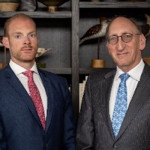
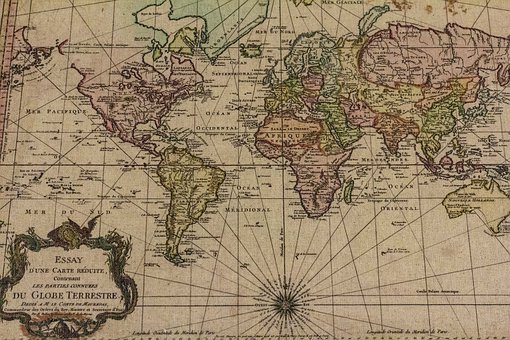
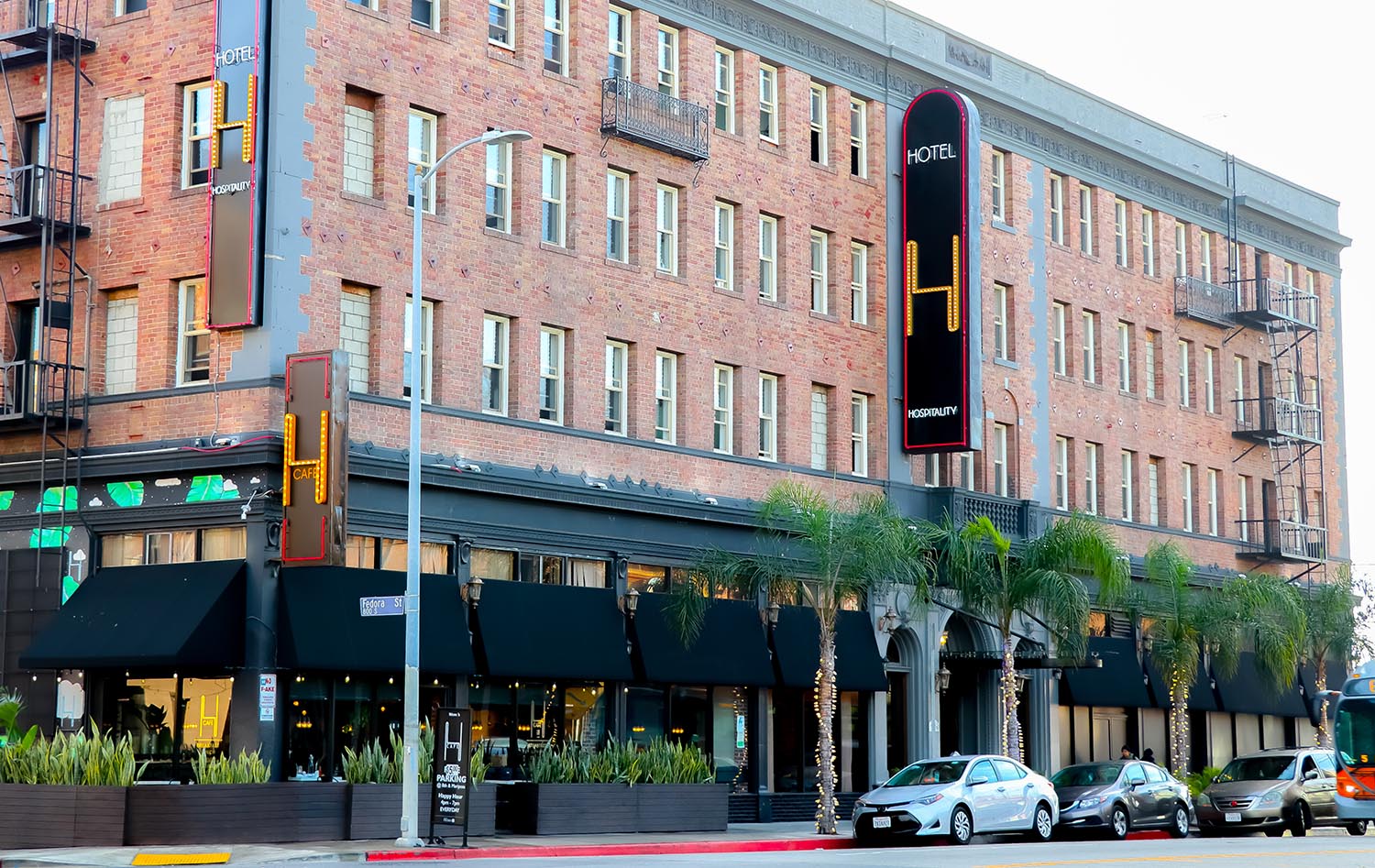

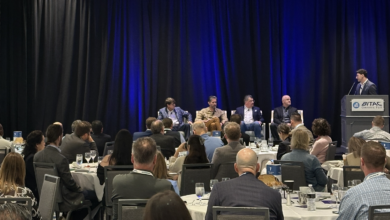
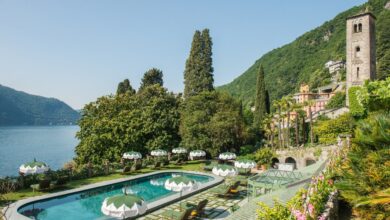
Get involved!
Comments